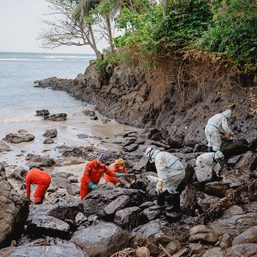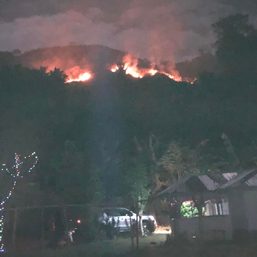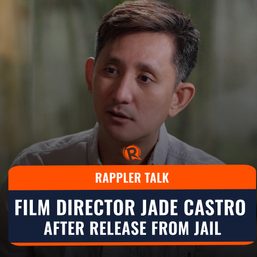SUMMARY
This is AI generated summarization, which may have errors. For context, always refer to the full article.

MANILA, Philippines – The Philippine National Police (PNP) filed an administrative case against three cops over the unlawful arrest of film director Jade Castro and three others, Castro’s lawyer confirmed.
“I got a phone call just this morning from PNP-RIAS, Regional Internal Affairs Service, that they filed, motu proprio, administrative [case] against the chief of police, the investigator, and the arresting officers,” lawyer Michael Marpuri said in a press conference on Tuesday, March 12.
A document seen by Rappler showed it was the main IAS that filed the case. The IAS is the unit mandated to probe police abuses.

Police Captain Daniel dela Cruz, Police Senior Master Sergeant Jonjon Pordan, and Police Corporal Christian Abenilla face a less grave misconduct case over the director’s unlawful arrest.
An administrative case is different from a criminal case. In these cases, the PNP determines the punishment – ranging from suspension to dismissal from service – against the police personnel or police officer who would be found guilty.
After their 40-day detention, Castro and his friends were finally released from detention on Monday, March 11. The Catanauan Regional Trial Court Branch 96 granted the four’s motion to quash, which, in effect, dismissed the charge against them. The court said it could not acquire jurisdiction over the four accused because the police “arrested them not in accordance with Section 5(b), Rule 113 of the Rules of Court.”
The court simply meant Castro and his companions’ arrest did not fall under the allowed instances where warrantless arrest is justifiable. Under the Rules of Court, a person may be arrested without a warrant if he or she is caught in the act, if there’s probable cause to believe that a crime was committed, or if the person is a fugitive.
The court found that the arresting cops had no probable cause “based on personal knowledge or even on reasonable suspicion” to proceed with their operation.
Castro – who helmed critically acclaimed films like Endo and Zombadings – and his friends were arrested without a warrant on February 1 for allegedly burning a modern jeepney in Catanauan, Quezon.
The alleged crime was committed in Catanauan, which is less than an hour away from Mulanay town, where Castro and his friends were staying for a vacation. A closed-circuit television or CCTV footage showed Castro and his friend’s car passing through a Mulanay road at around 7 pm on January 31, about the same time when the crime was being committed in Catanauan.
Mulanay town officials also said that Castro and his friends were with them when the alleged arson transpired in Catanauan.
During the press conference, human rights lawyer Chel Diokno, who was also part of Castro’s legal team, reiterated that warrantless arrests should only be done in exceptional circumstances stated by the law. But, Diokno said there are instances where warrantless arrest becomes the default option of law enforcement.
“In practice, nagiging subject siya ng pang-aabuso sa mga nahahawakan namin na kaso (it becomes a subject of abuse in cases we handle). That’s probably the number one violation that we encounter,” the human rights lawyer said.
Pursuing the case
Will Castro go after the cops who arrested them? In an interview with Rappler, Castro said they have yet to decide on the matter.
But unlike the film director, the regional PNP is already sure about its next move.
In a statement on Tuesday, PNP Calabarzon director Police Brigadier General Paul Kenneth Lucas said they will continue investigating the arson charge against the four since the court said that the charge filed against them constituted destructive arson.
“We, in the Police Regional Office CALABARZON, remain committed to ensuring justice is served and will continue our thorough investigation into the case. The ruling, in no way, undermines the dedication of the men and women of this regional office in building a strong case against the suspects. We will diligently gather appropriate evidence and work towards re-filing the case of destructive arson against the accused,” Lucas said.
In the event that the case is refiled, it would not constitute double jeopardy since their case did not reach arraignment. Arraignment is where “the judge reads the charges filed against the defendant in the complaint and the defendant chooses to plead ‘guilty,’ ‘not guilty’ or ‘no contest’ to those charges.” – Rappler.com
1 comment
How does this make you feel?









![[PODCAST] Teach Me, Senpai, E10: Writing and directing films with Rae Red](https://www.rappler.com/tachyon/2024/03/teach-me-senpai-ls-guest.jpg?resize=257%2C257&crop=459px%2C0px%2C1080px%2C1080px)


This is a mysterious case due to the 40-day detention. What took the PNP that long to detain Jade Castro? How about the motivation? Why would a film director burn a modern jeepney? Even if the burning is for making a film, using Computer-Generated Imagery will do the trick, and it is the least expensive.